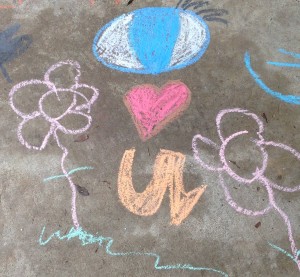The January wind blew harsh on my face as I studied the line of trees stretching across the parking lot. Their branches had no leaves, but were loaded with small, hard, dark brown balls.
The trees matched the weather – bare, stark, hard. And the weather matched my heart as it trudged along the winding path of grief.
Grief is like a raging storm scattered with lightning bolts. These short bursts of light in the darkness momentarily reveal the deepest parts of our soul. These short bursts of light shake us to our core and let us know if what we are holding onto is strong enough to stretch into eternity. Like a lightning bolt slicing a mighty oak, grief splits through the distractions and barriers in our lives and brings us face to face with the reality that if we are without God then we are without hope.
But in the hands of God, grief mingles with hope. Loss and life intertwine.
In the midst of grief, hope reminds us that we were created with eternity in our hearts. We were created for more than this life could ever offer.
Hope comforts our hearts with the truth that our loved ones are with the Lord.
But even that comfort reminds us of our loss because if they are with the Lord, they are not with us. At the same time, there is also great encouragement. If they are with the Lord, we will see them again. The loss, though painful, is not permanent.
And what are we to do as we live in this in-between?
We are to walk the path of grief, so that hope can have its way in us.
God uses grief to touch places of our hearts that would otherwise remain unchanged. Grief is messy and uncomfortable, and the path of grief takes time. If we try to rush through grief, we will miss the hope.
“In western Christian culture, we’ve been conditioned to hide sadness, cover up weakness, and put a strong and cheerful face forward. We hide our grief for fear that others will mistake it for ingratitude. We bury our lament before it’s finished because we’ve been told there’s an open window somewhere that we should be focusing on instead.
And yet, when I look at Scripture, I see welcomed space for these things. There are no time limits or cut-off dates placed over them. Jeremiah does this beautifully in Lamentations 3. While the chapter ends with hope, there’s nothing of platitude in his writing.” Tasha Jun
In God’s hands, grief builds our trust in Him, strengthens our faith, and teaches us to walk in hope through this broken world because we know that a time is coming when all things will be made right.
The harsh January wind won’t always blow. Eventually, the warmth of the sun and the gentle spring breeze will coax the hard balls on the trees to reveal the delicate buds hidden inside. These buds will open, covering the trees with a explosion of white flowers, as if to celebrate being made new.
Loss and life. Grief and hope.









